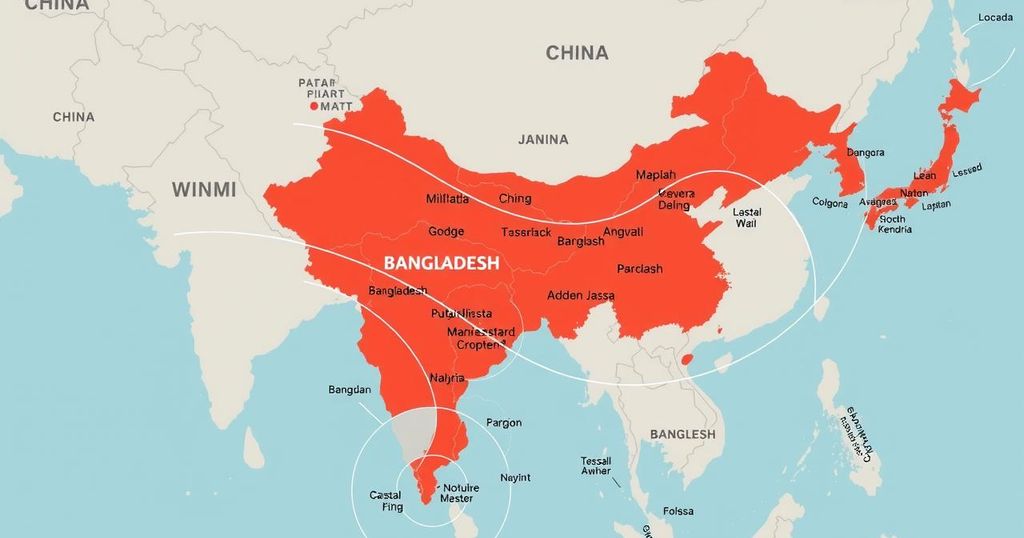Bangladesh Seeks Chinese Support, Signals Challenge for Northeast India
Bangladesh’s Muhammad Yunus has made remarks suggesting the need for Chinese “extension” in Northeast India, emphasizing the region’s landlocked status. His comments have drawn criticism and raised concerns regarding Bangladesh’s increasing reliance on China for infrastructure and river management. During his visit to Beijing, Yunus secured significant investments to enhance Bangladeshi ports and infrastructure while shifting focus on Chinese involvement in managing shared waters with India.
In a recent statement, Muhammad Yunus, an adviser to Bangladesh’s interim government, hinted at a potential alignment with China that could pose challenges for India’s northeastern states. During his four-day visit to Beijing, Mr. Yunus appealed for China’s assistance in establishing a presence in the region, asserting that the “seven sister states” of India are landlocked, thus depending on Bangladesh for maritime access.
Mr. Yunus controversially suggested that this geostrategic situation could benefit China economically, advocating for investment in Bangladesh as a means to enhance regional economic ties. His remarks have drawn criticism from defense analysts, who characterized the comments as inappropriate. Sanjeev Sanyal, a member of India’s PM Modi’s economic advisory council, commented on the situation and questioned the relevance of the landlocked status of the Indian states in Yunus’s appeal to China.
In terms of bilateral relations, Mr. Yunus engaged in discussions with Chinese President Xi Jinping, which resulted in several agreements aimed at infrastructural development in Bangladesh. China pledged $400 million for the modernization of Mongla Port and an additional $350 million for expanding the China Economic and Industrial Zone in Chattogram. Yunus further requested Chinese expertise in river water management for the Teesta river, a shared resource with India, demonstrating a shift towards China’s involvement over Indian cooperation.
The talks between Bangladesh and China also included an agreement regarding the exchange of hydrological information concerning the Yarlung Zangbo-Jamuna River. The collaboration signifies a new phase in Bangladesh-China relations, particularly regarding water management and infrastructure, albeit amidst concerns regarding its implications for regional geopolitics.
The remarks made by Muhammad Yunus during his visit to China highlight a potentially strategic shift in Bangladesh’s foreign policy, particularly concerning its relationship with India and reliance on Chinese support. By seeking to align more closely with China, Mr. Yunus raises important questions regarding regional stability and cooperation. The agreements signed may mark significant advancements in Bangladesh’s infrastructural capabilities, yet they also evoke concerns over the geopolitical balance in South Asia.
Original Source: www.ndtv.com








Post Comment